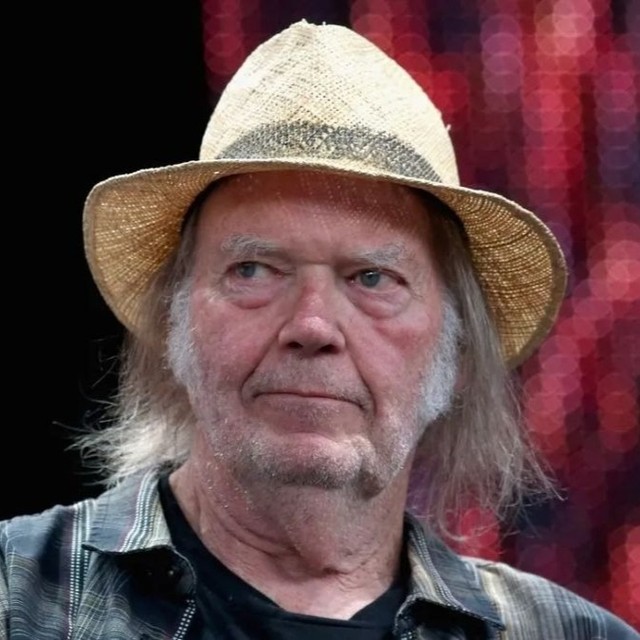Neil Young Withdraws from Glastonbury 2025 Over BBC's Corporate Influence: A Closer Look at His Career and Legacy
Music icon Neil Young has made waves by withdrawing from performing at Glastonbury 2025, citing concerns over the festival’s growing corporate influence, particularly the involvement of the BBC. Young, known for his long-standing anti-corporate stance and advocacy for artistic freedom, expressed disappointment that the iconic music festival no longer aligned with his values. His withdrawal has sparked debate on the festival’s shift towards commercial interests and its evolving identity.
The Glastonbury Festival, traditionally known for its diverse and eclectic performances, has been a bastion of counterculture and artistic expression. However, as the festival continues to grow in scale and importance, the increasing presence of corporate sponsors and media outlets such as the BBC has led to a shift in its atmosphere. In a heartfelt letter posted on his Neil Young Archives website, the 79-year-old musician stated that the festival is “not the way I remember it being,” pointing out how the BBC’s involvement has fundamentally changed the essence of Glastonbury.
Neil Young’s Withdrawal and the BBC’s Influence
For Neil Young, Glastonbury has long been a festival of artistic freedom and expression. The Canadian-American musician, who has shaped the world of rock, folk, and alternative music, had hoped to perform at the 2025 edition of the festival with his band, the Chrome Hearts. Young, however, became disillusioned after learning that the BBC, a long-time partner of the festival, had a significant role in its organization and broadcasting operations. The festival's partnership with the BBC, which began in 1997, had led to certain conditions for performing artists that Young did not find appealing.
In his letter, Young said, “We were informed that the BBC was now a partner in Glastonbury and wanted us to do a lot of things in a way we were not interested in. It seems Glastonbury is now under corporate control and is not the way I remember it being.” Young’s frustrations reflect a growing sentiment among certain musicians and fans that large corporations are gradually taking over events that were once known for their grassroots, anti-establishment ethos.
Neil Young's Iconic Career and Advocacy for Authenticity
To understand the significance of Neil Young’s withdrawal from Glastonbury, it’s important to consider his legendary career and consistent commitment to artistic authenticity. Young’s career spans over six decades, with his contributions to rock, folk, and country music cementing him as one of the most influential artists of all time.
From his early work with Buffalo Springfield to his successful solo career, Young’s music has always been marked by honesty, raw emotion, and a rejection of the mainstream music industry’s expectations. His iconic album Harvest (1972), which includes hits such as "Heart of Gold," is one of the best-selling albums of all time and showcased his unique ability to blend folk, country, and rock into a universally appealing sound.
Beyond his music, Young has consistently spoken out against the commercialization of the music industry and the environmental damage caused by corporate practices. He has been a vocal advocate for independent artists and has often chosen to release music on his terms, rather than following the conventional paths dictated by record labels and commercial interests.
In his 1979 album Rust Never Sleeps, Young directly confronted the tension between artistic integrity and the pressures of the mainstream music industry. The album featured songs like “My My, Hey Hey (Out of the Blue)” and “Hey Hey, My My (Into the Black),” which encapsulated Young’s evolving view on the relationship between creativity and commercial success.
The Rise of Glastonbury and Its Changing Identity
Glastonbury, established in 1970, has always been a symbol of artistic freedom and countercultural values. In its early years, it was a small, local event, drawing a modest crowd to the Somerset countryside. Over the decades, however, the festival has grown into one of the most significant cultural events in the world, attracting over 200,000 attendees each year and showcasing a vast array of musical genres.
The BBC’s involvement with the festival began in 1997, marking a pivotal point in Glastonbury’s expansion into a global phenomenon. While the BBC’s coverage brought Glastonbury to an international audience, it also marked the beginning of a more commercialized approach to the festival. Over the years, the BBC’s broadcasting rights have allowed the festival to be aired globally, with performances from major artists reaching millions of viewers.
However, the increasing influence of corporate sponsors and media outlets has led some musicians, like Neil Young, to question whether the festival’s ethos has been compromised. While Glastonbury still showcases a wide range of artists, from emerging talents to global superstars, its growing association with corporate interests has led to concerns about the potential loss of the festival’s original, anti-corporate spirit.
Neil Young's Legacy of Integrity and Authenticity
Neil Young’s decision to withdraw from Glastonbury 2025 is consistent with his long-standing commitment to maintaining artistic integrity. Throughout his career, Young has faced pressure from the music industry to conform to commercial expectations, but he has always chosen the path of independence.
One of Young’s most notable moments of rebellion came in the 1980s when he famously feuded with his record label over the direction of his music. After the release of Trans (1982), an album that blended rock with synthesizers, Young’s label was frustrated with the album’s unconventional sound. Instead of giving in to industry pressure, Young followed up with the more stripped-down and acoustic Harvest Moon (1992), which returned to his roots as a folk and country artist.
Young’s willingness to take risks and experiment with different musical genres has earned him both critical acclaim and commercial success. He has also been a passionate advocate for environmental issues, using his platform to raise awareness about climate change and the importance of protecting natural resources. His 2006 album Living with War was a direct response to the Iraq War and a reflection of Young’s ongoing commitment to activism through music.
Related: Netflix Scores a Touchdown with Record-Breaking NFL Streaming Debut
Glastonbury 2025: What’s Next for the Festival and Its Artists?
Neil Young’s withdrawal from Glastonbury 2025 is a reminder of the complex relationship between artists and the commercial forces that shape large-scale music festivals. As Glastonbury continues to expand its media and corporate partnerships, it will face ongoing scrutiny from musicians and fans who are concerned about the festival’s original ethos.
Despite this shift, Glastonbury remains one of the world’s most anticipated music festivals, attracting top-tier talent and millions of viewers worldwide. The 2025 edition, scheduled for June 27-29, is already generating excitement with rumored headliners such as Olivia Rodrigo, Rihanna, Eminem, and Ed Sheeran. The complete lineup will be announced in March, with tickets for the event having sold out in just 32 minutes.
However, as Glastonbury evolves, artists like Neil Young will continue to evaluate whether the festival aligns with their values. For many, the question remains: Can Glastonbury maintain its integrity as it grows, or will it continue to be shaped by the corporate forces that are changing the landscape of music festivals worldwide?
Neil Young’s Influence and Glastonbury’s Future
Neil Young’s withdrawal from Glastonbury 2025 highlights a larger conversation about the commercialization of music festivals and the importance of maintaining artistic integrity. As Glastonbury’s identity continues to evolve, the festival will need to navigate the delicate balance between commercial success and staying true to the grassroots, anti-establishment values that defined its early years. For now, Neil Young’s legacy remains intact, and his decision to withdraw from the festival underscores his ongoing commitment to authenticity, independence, and artistic freedom.














